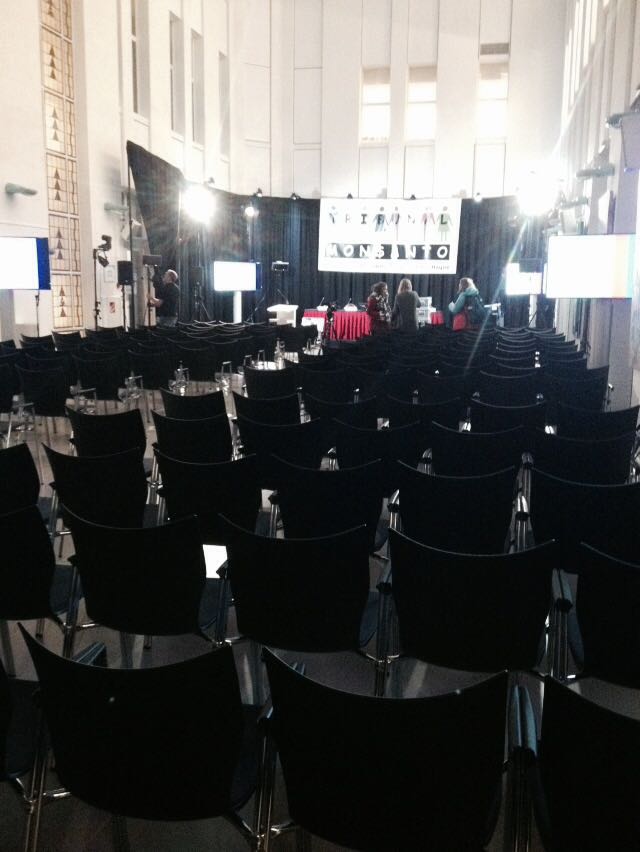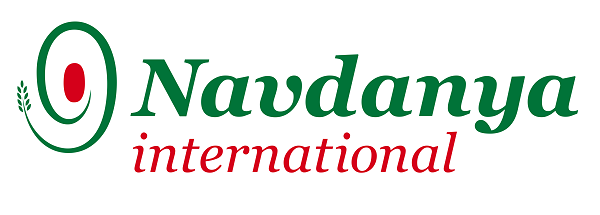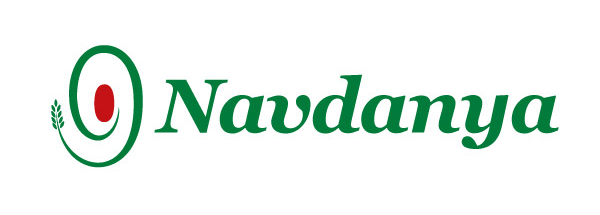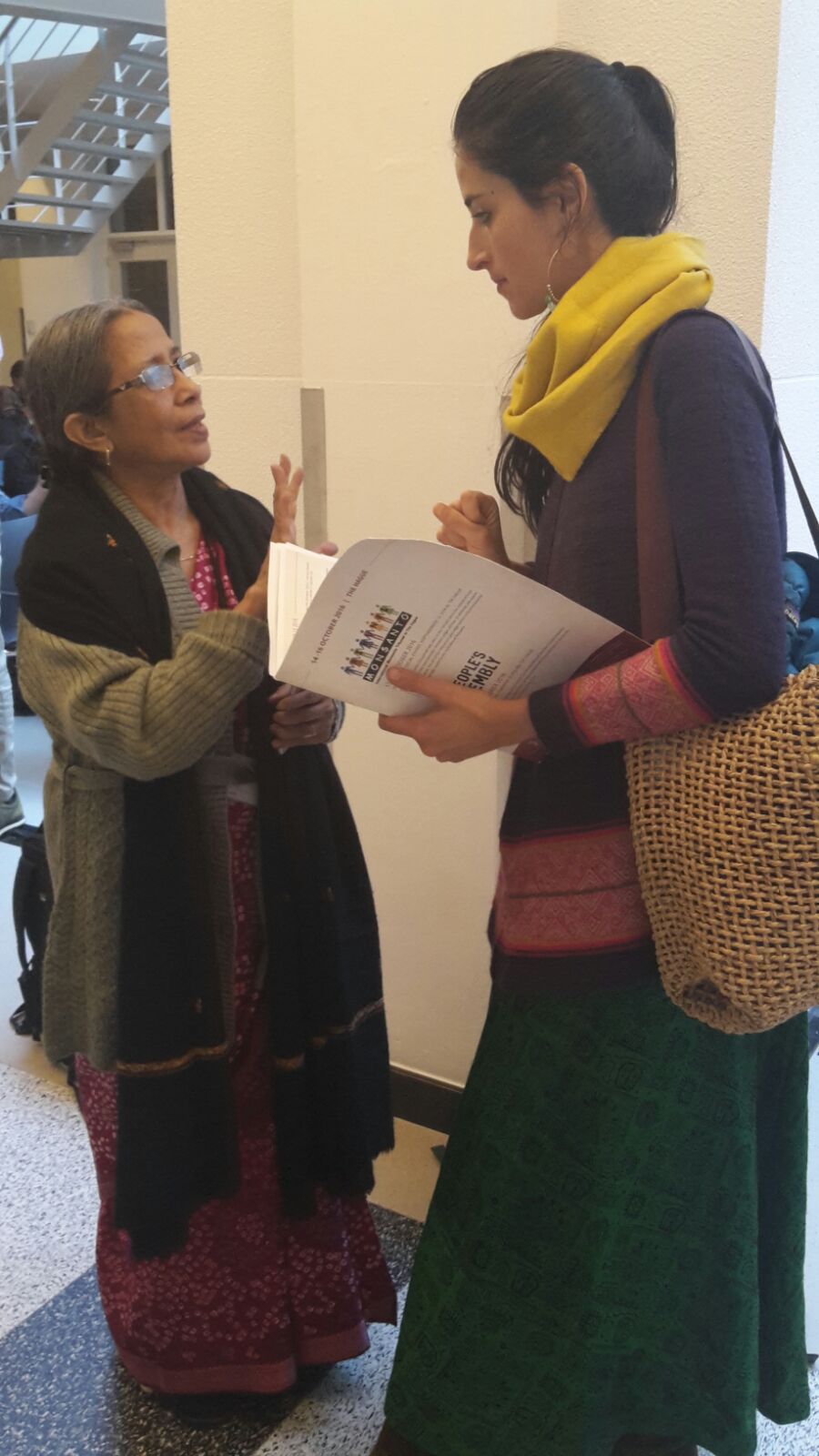
Farida Akhter, policy analyst, Bangladesh
“If you want to get info about Bt. Brinjal you will barely find any on national website. In 2005 a tripartite agreement signed between two private companies and Bangladesh research institute, since that 9 local varieties were given to Monsanto who inserted Bt gene into it and claimed that they have IPR on it. No one knew about this agreement until 2014 after it was approved by government. Starting in 2007 there were some confined trial plots, but no research was shown to the public. The first round of Bt Brinjal failed but the second round was undertaken regardless in early 2014, which failed miserably again. ”
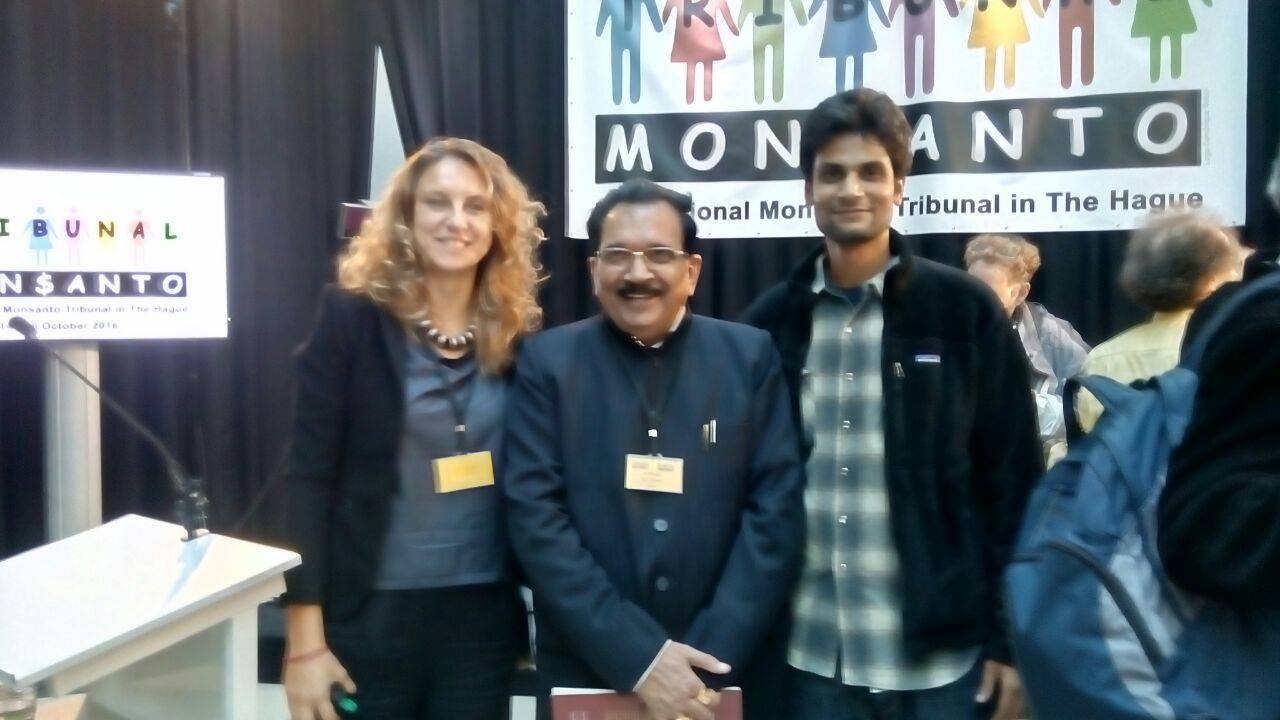
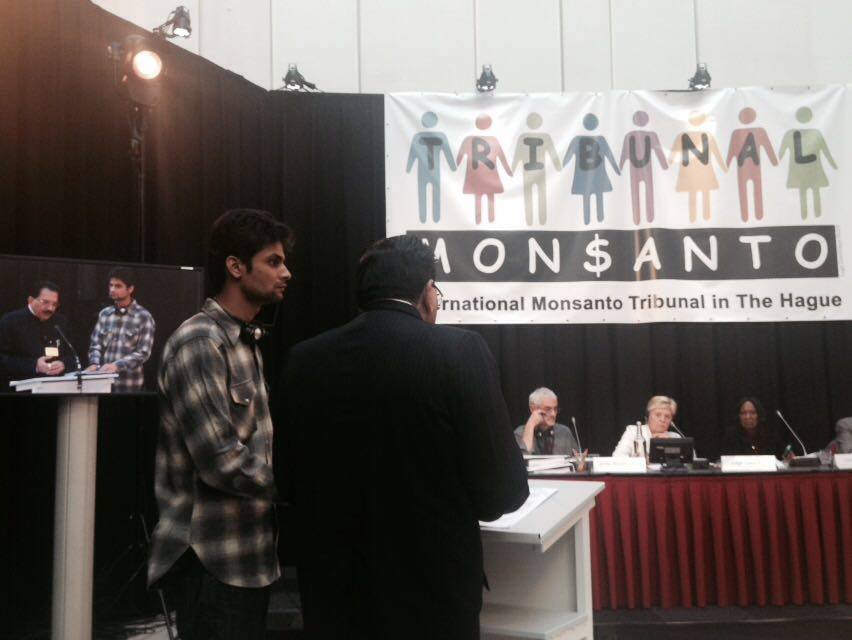
Krishan Bir Chaudhary, scientist, farmers’ leader India
“300 000 suicides in India due to Bt Cotton leaving their families homeless, landless and with no compensation. The price of 1 kg of cotton seeds use to be 5-7 ruppees, after Monsanto’ s arrival it increased by 70 000% .Monsanto corrupted th government through bribes, 95% of cotton in India is Bt cotton. Furthermore India is currently debating about the introduction of GM mustard, this means that Monsanto is trying to have a monopoly on food as well as seeds.
We cannot tolerate larger companies, Indian farmers are too small. There should be a body that only works for the farmer and their rights.”
17.00 The fifth session has bagun: IMPACT ON FARMERS AND THE RIGHT TO FOOD
16.30 Coffe break
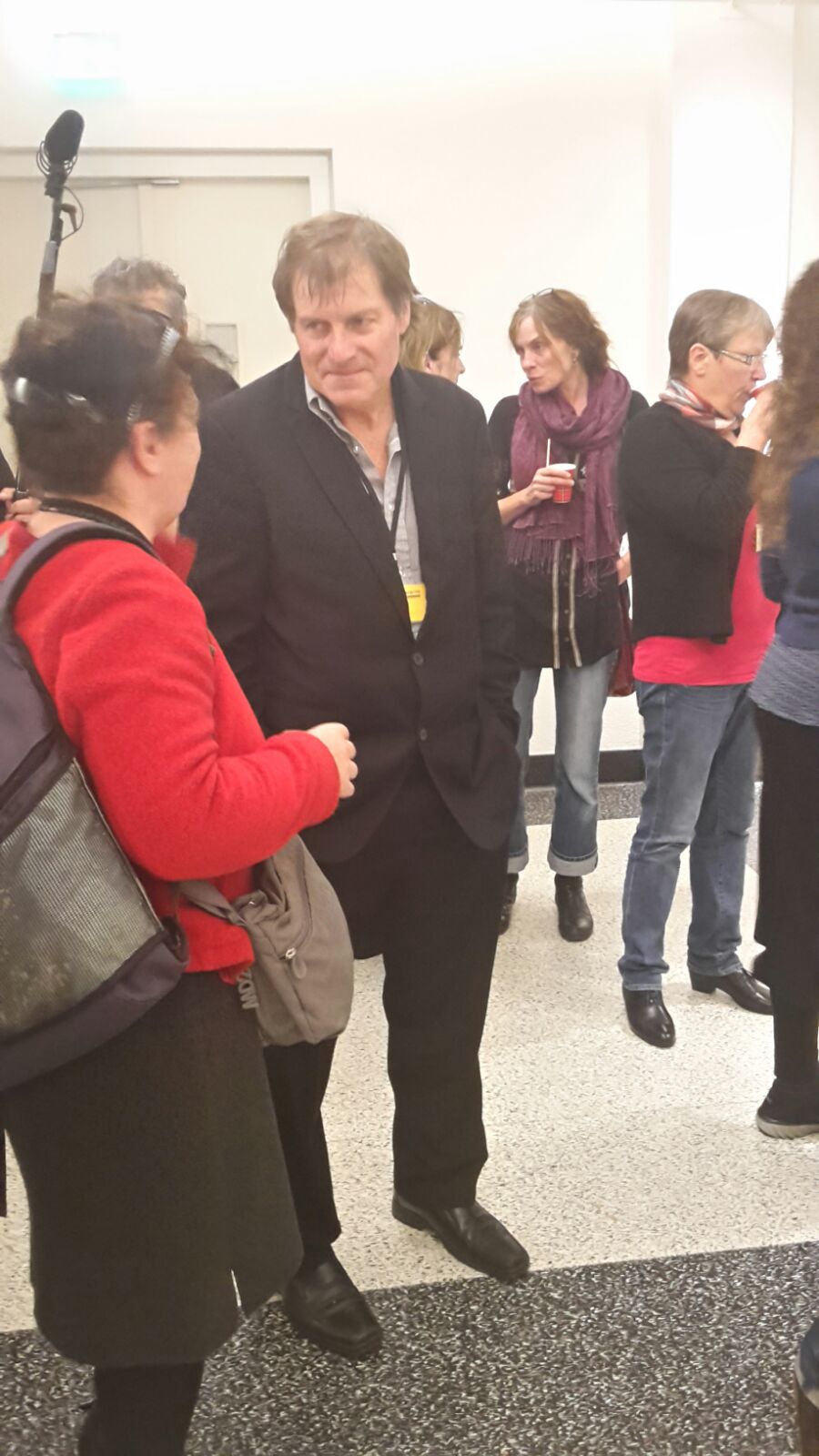
Steve Marsh, organic farmer, Australia
He started to notice negative effects of agro toxics which were leading to resistance, so he turned to organic agriculture. In 2004-05 he had first positive impacts of having switched to organic agriculture which lasted until 2008 when he started to notice traces of GM in his products and this was a huge issue for selling his organic products. Trials demonstrated that GM canola could not be contained but the government still approved it for released in 2009. His neighbor started growing GM Canola, he attempted to take precautionary measures to prevent contamination. Despite warning neighbor, he lost approximately 70% of crops as a result of contamination. Eventually filed litigation he went to trial, but the court ruled that his neighbour was not negligent. Steve Marah lost, and the trial cost him 130000 personally. At the same time, all kinds of correspondence going between Monsanto and the government.
“The most important thing is that it doesn’t happen again. Clearly it will not be stopped at national level because of relationship between government and regulators. Generally, in Australia there is concept of co-existence, you can’t interfere negatively on other people’s property rights, but does not apply to GMOS. Believes it comes down to issue of property rights. Loosing the rights to own the very commodities we are producing.”
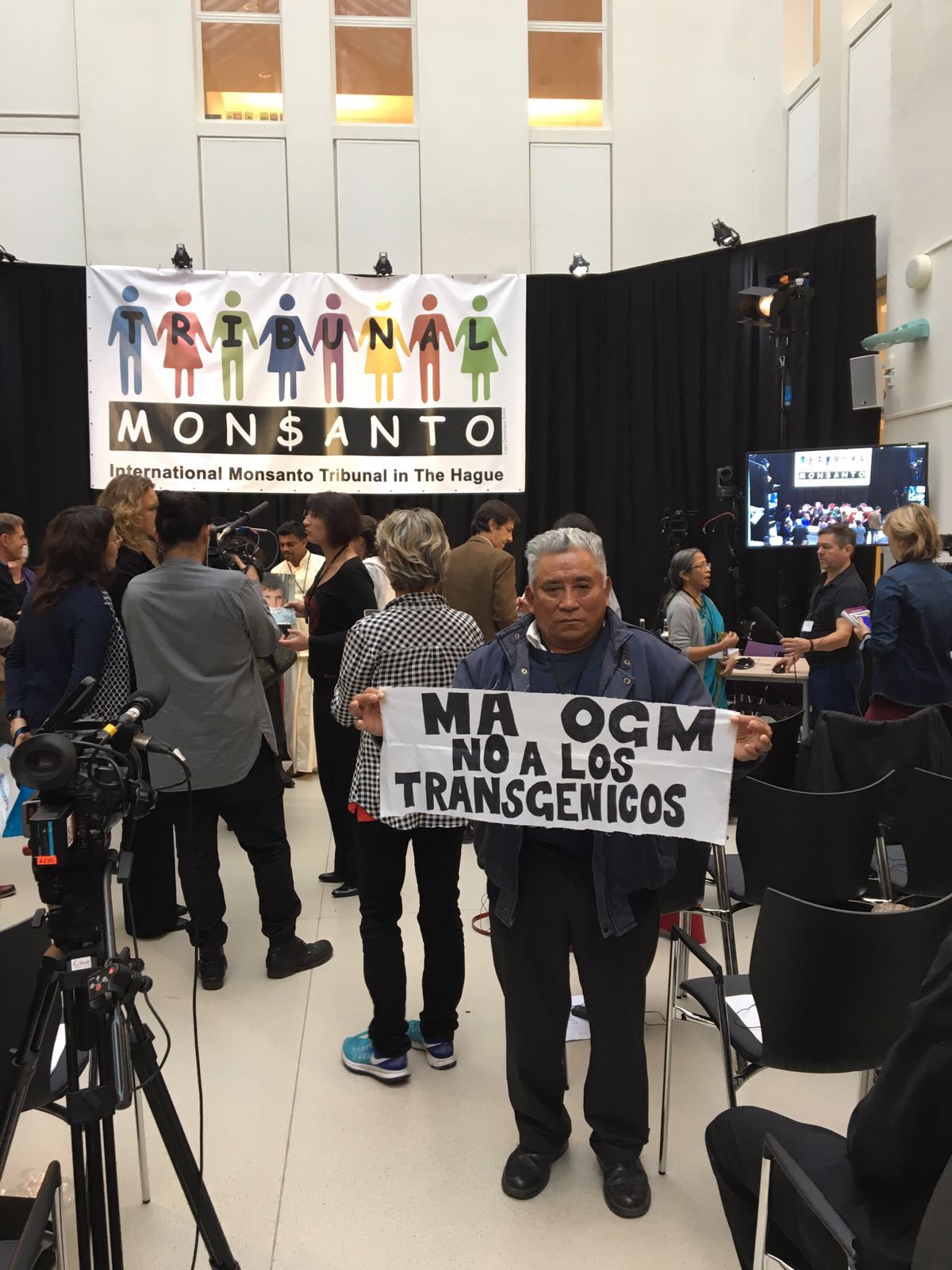
Marìa Colin, lawyer Mexico
“In 2014 the two previous speakers filed lawsuit against Monsanto which eventually went to highest court of Mexico which confirmed that the rights of indigenous people had been violated limiting Monsanto from using glyphosate. However there was no compensation for farmers, Mexican courts never considered the social, political and economic costs. A petition from human rights committee that compensation needs to be paid. We ere going to file a lawsuit against the constitution against the air fumigation that went on in that region.
The original lawsuit we filed was about different concerns and rights to healthy environment. We think this is a threat to biodiversity and to health. Also connected to precautionary principle we have biodiversity law for GM products. Court didn’t solve the problem at the root. The right to work was affected. Mexican legislation is very much in favor of GM products and tend to take decisions in favor of companies. It is difficult to be neutral and tackle problem from the root. Mexican courts didn’t consider effects on the environment which cannot just be considered separate”
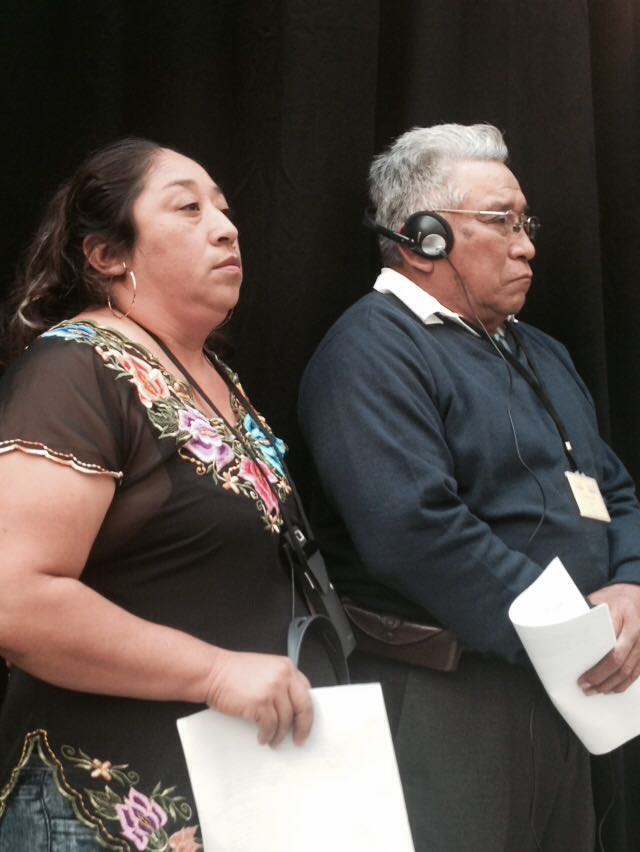
Feliciano Ucan Poot & Angelica El Canche, Mexican beekeepers
“Mayan communities are suffering due to GM soy, farmers in indigenous community in Mexico were not informed about the introduction of GMOs . They did not know that Monsanto was authorized by government to use GM soy, and we did not know about repercussions.
Our country is the third largest export country of honey, 15000 Mayan families live from bee keeping. The fact that Monsanto was allowed to sell GM soy and that it can be cultivated led the quality of our honey to decrease, and affected our market as the EU won’ t buy our honey if levels of GM contamination is too high. In 2015 soy was used by private countries in Mexico for the first time with the goal to strengthen farming.
We see this as an infraction on human life. We are a witness of massive human death, we see the environment starving, the production of honey decreasing and we are suffering because we depend on honey production. Other plants are also affected, due to monoculture 18 000 hectares have been deforested. Biodiversity has been reduced drastically as a result, affecting tourism as well as Mayan communities, due to the fact that there is no clean water, no clean soil. Contaminated water due to residue of glyphosate confirmed by doctor has caused health issues such a kidney infection”.
15.30 The fourth session has started: IMPACT ON BIODIVERSITY.
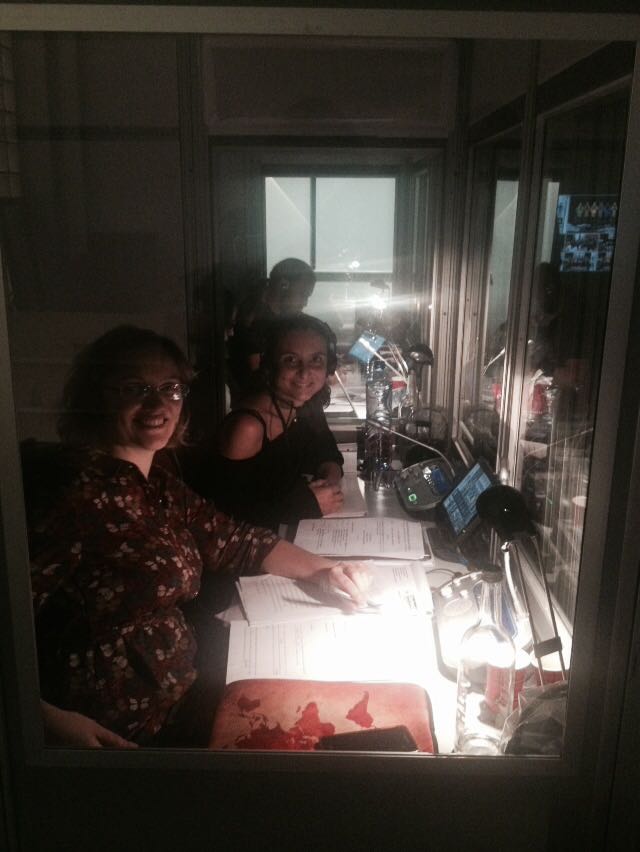
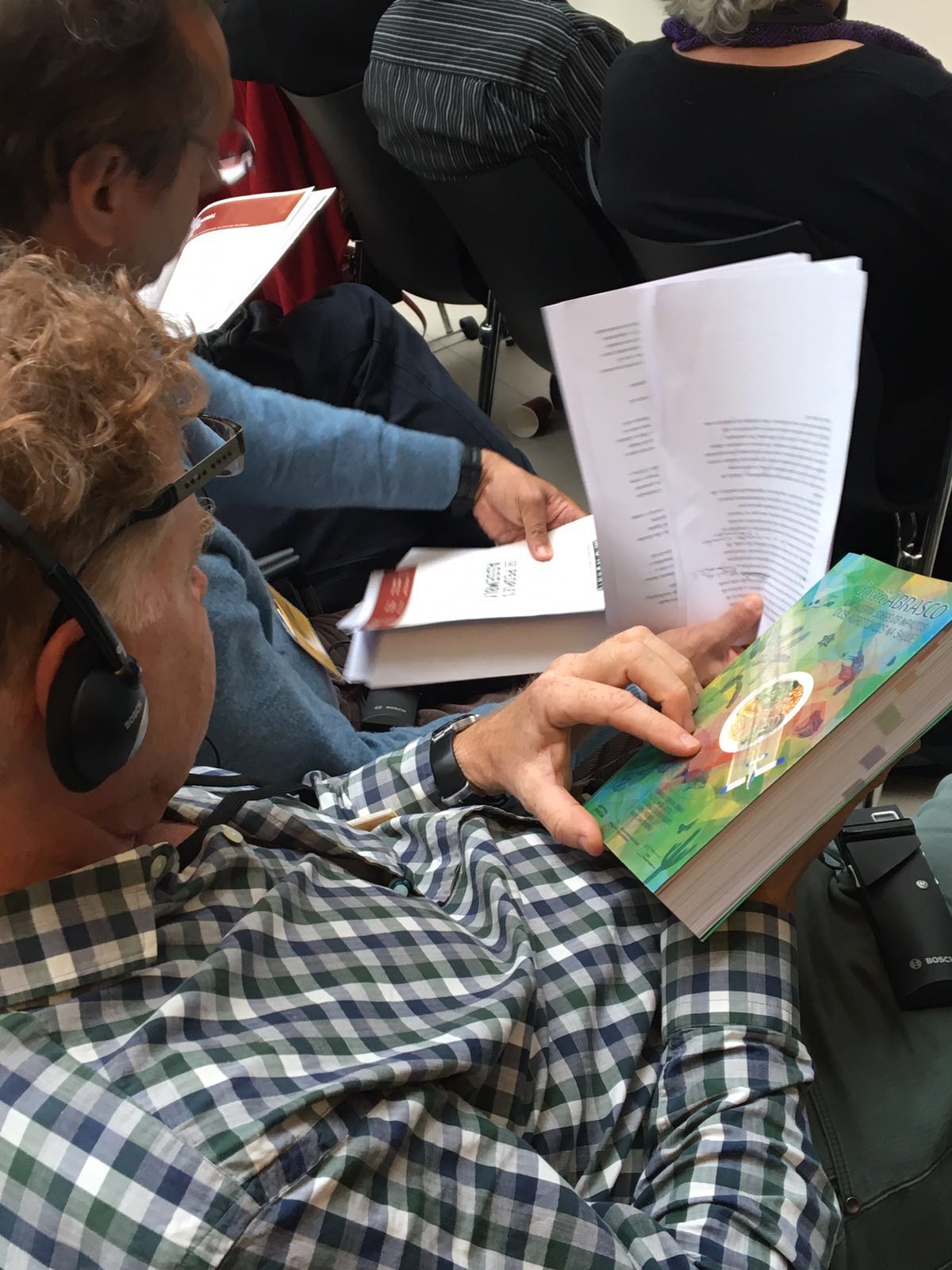
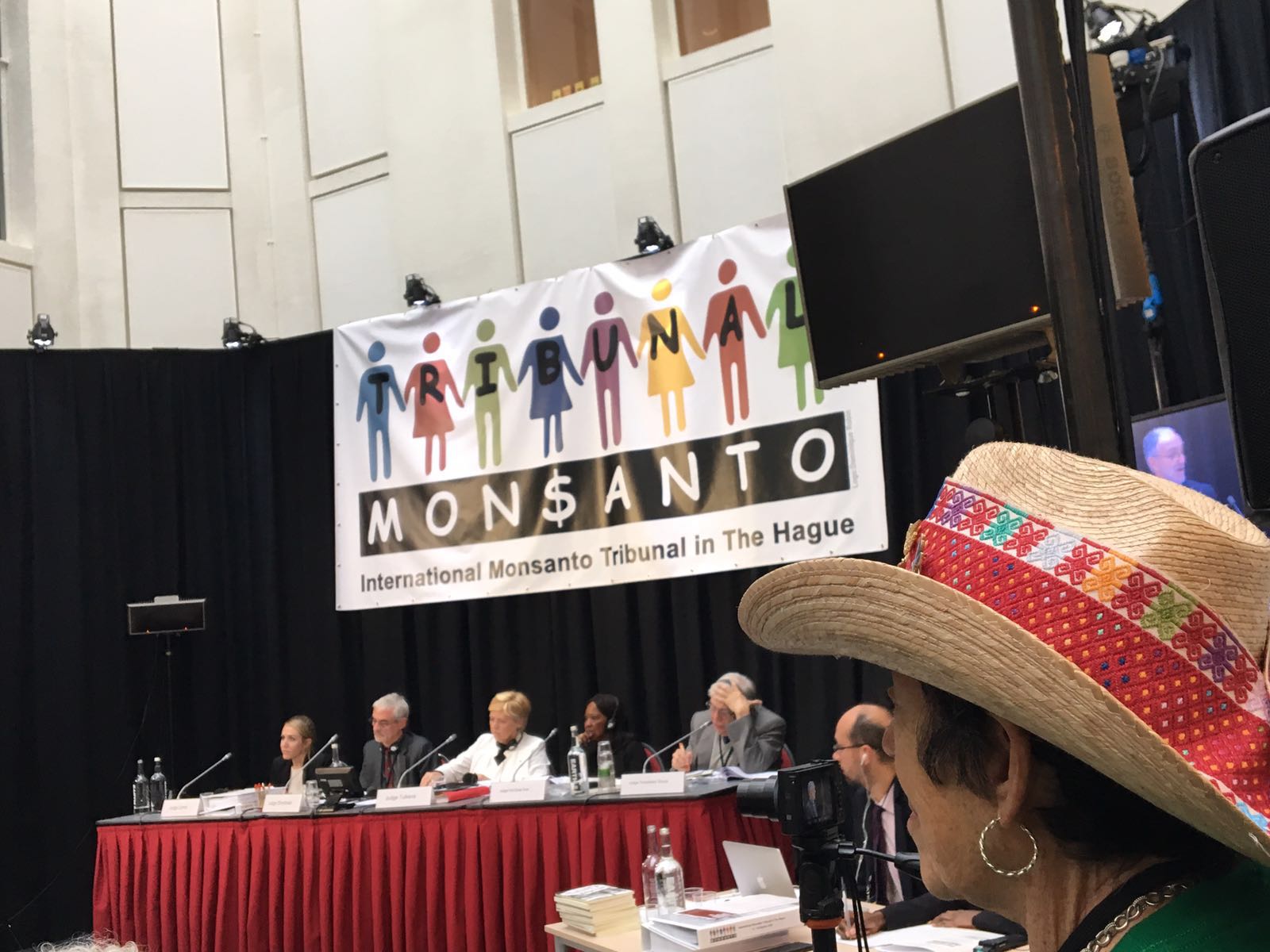
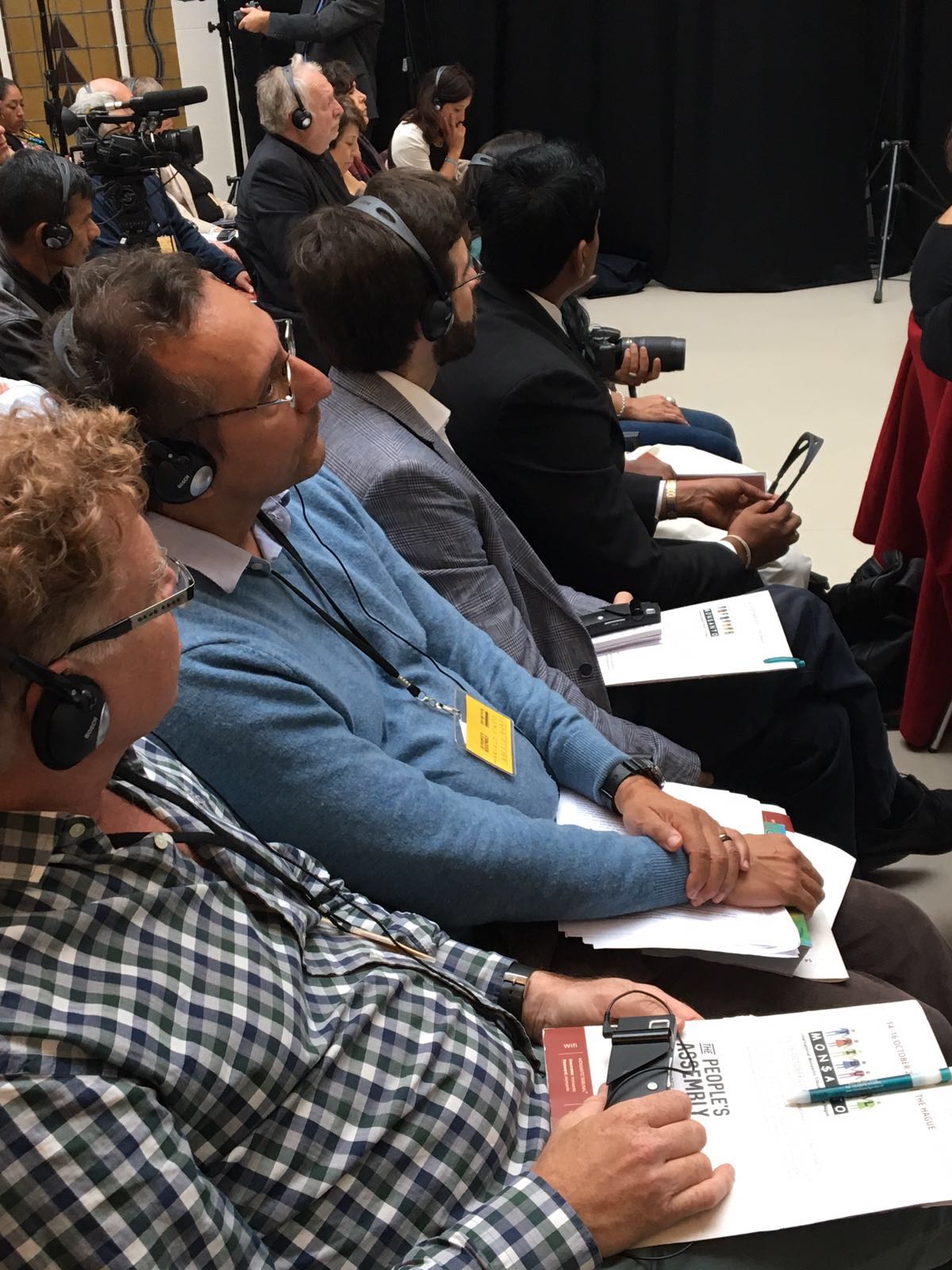
Damian Verzenassi, Marcelo Firpo and Diego Fernandez
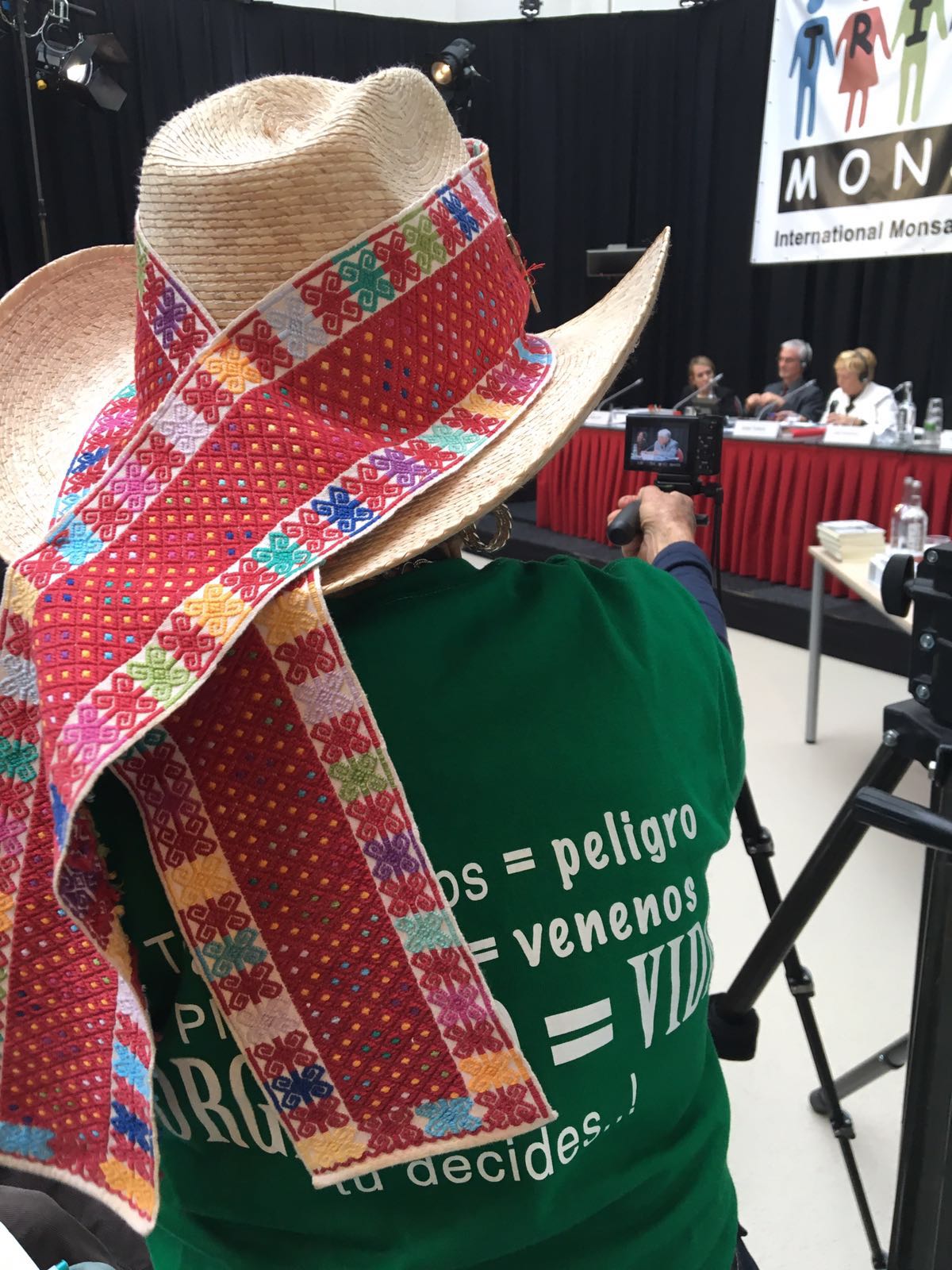
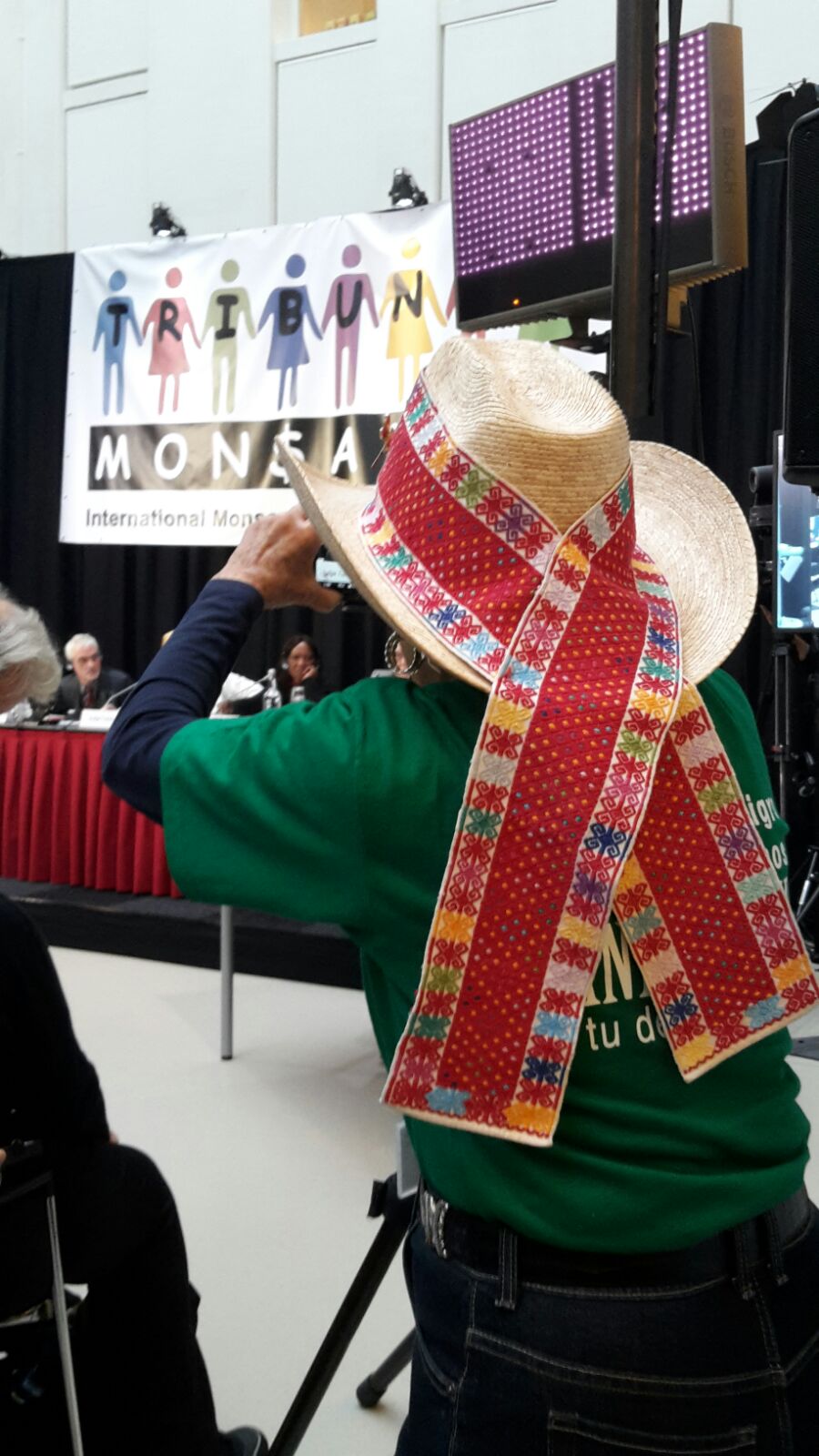
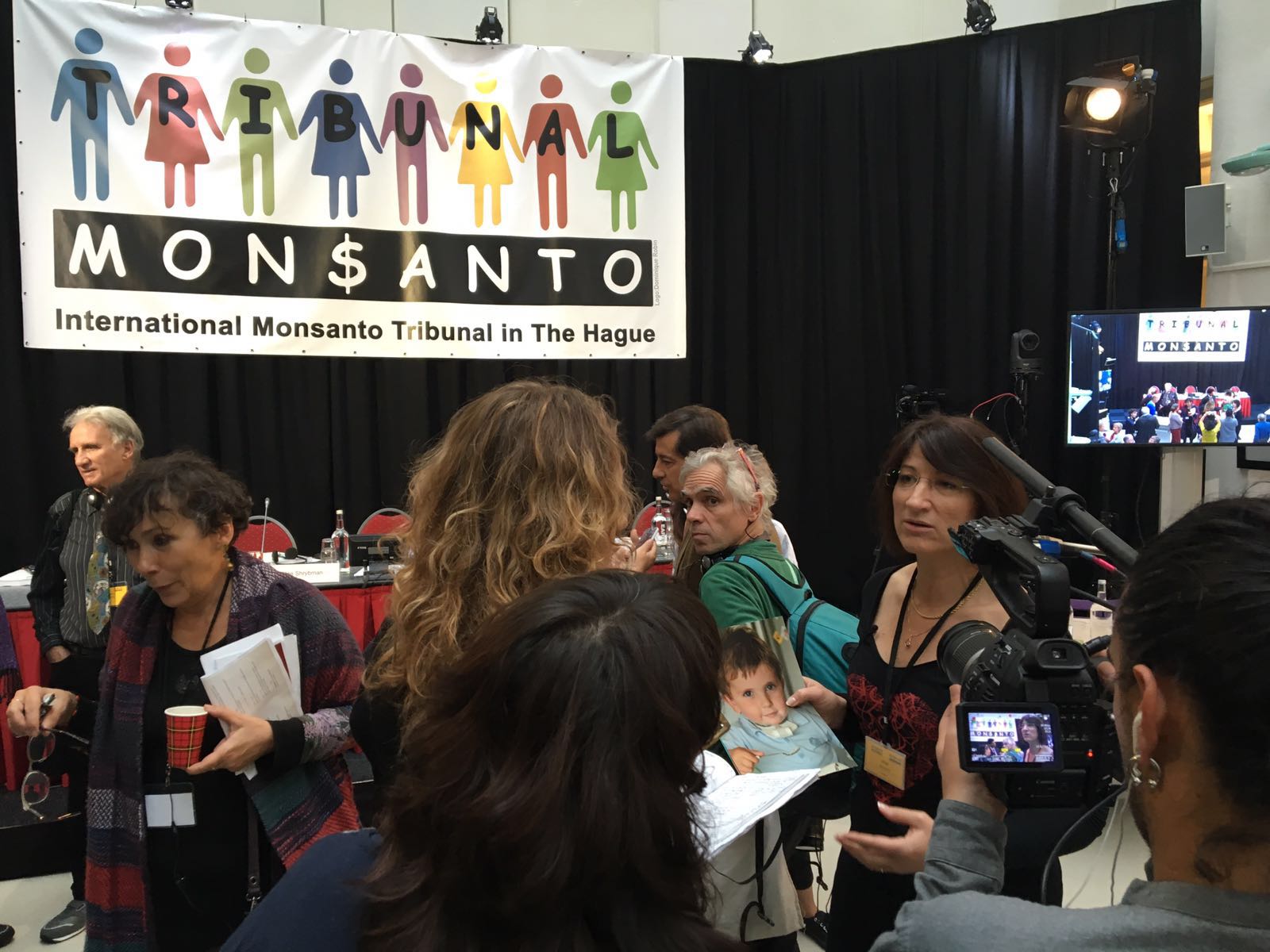
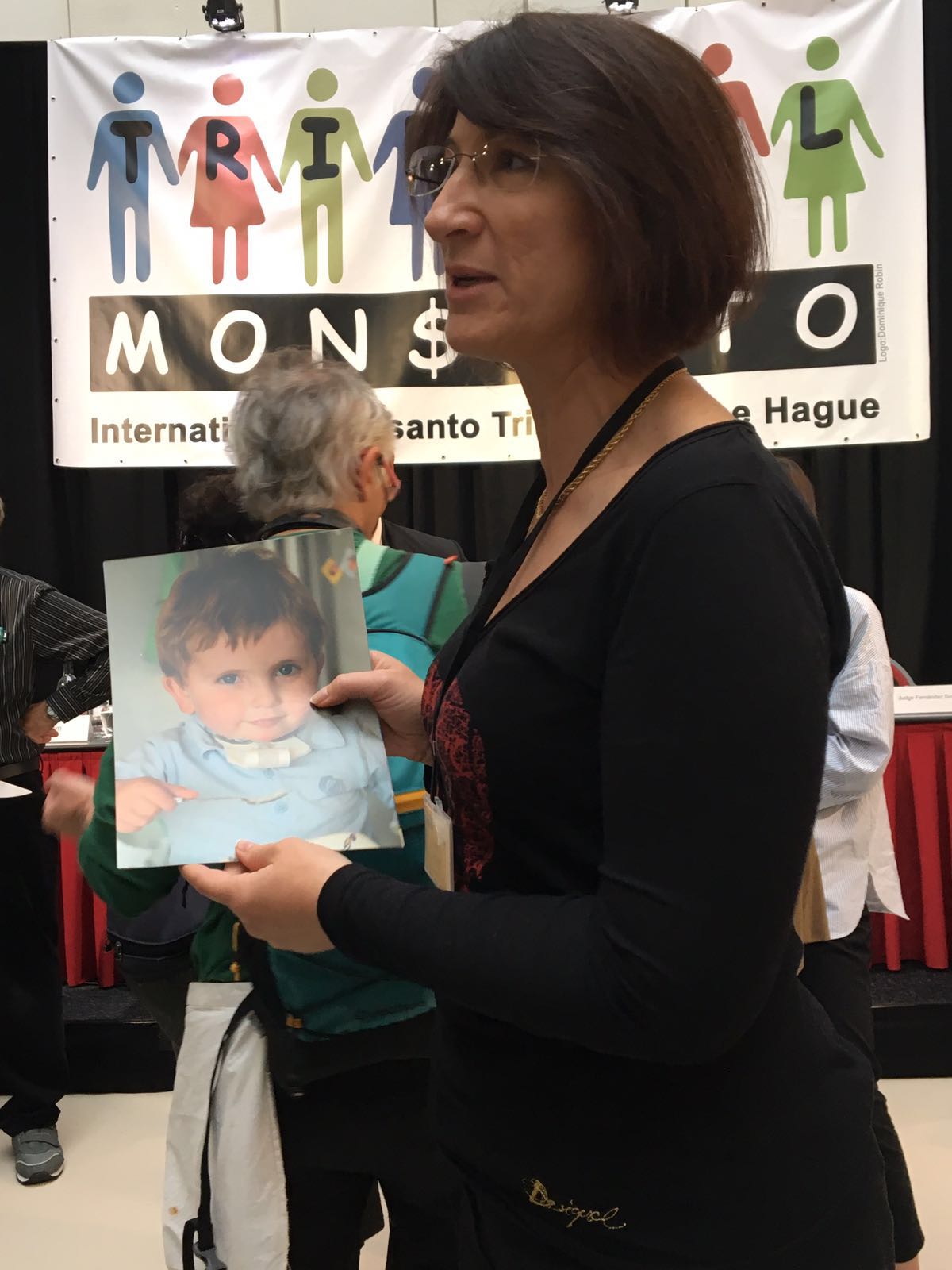
Sabine Grataloup
“No there was no labelling that had any warning as to possible birth defects. There was no information, nothing explicity about the toxicity of RoundUp”
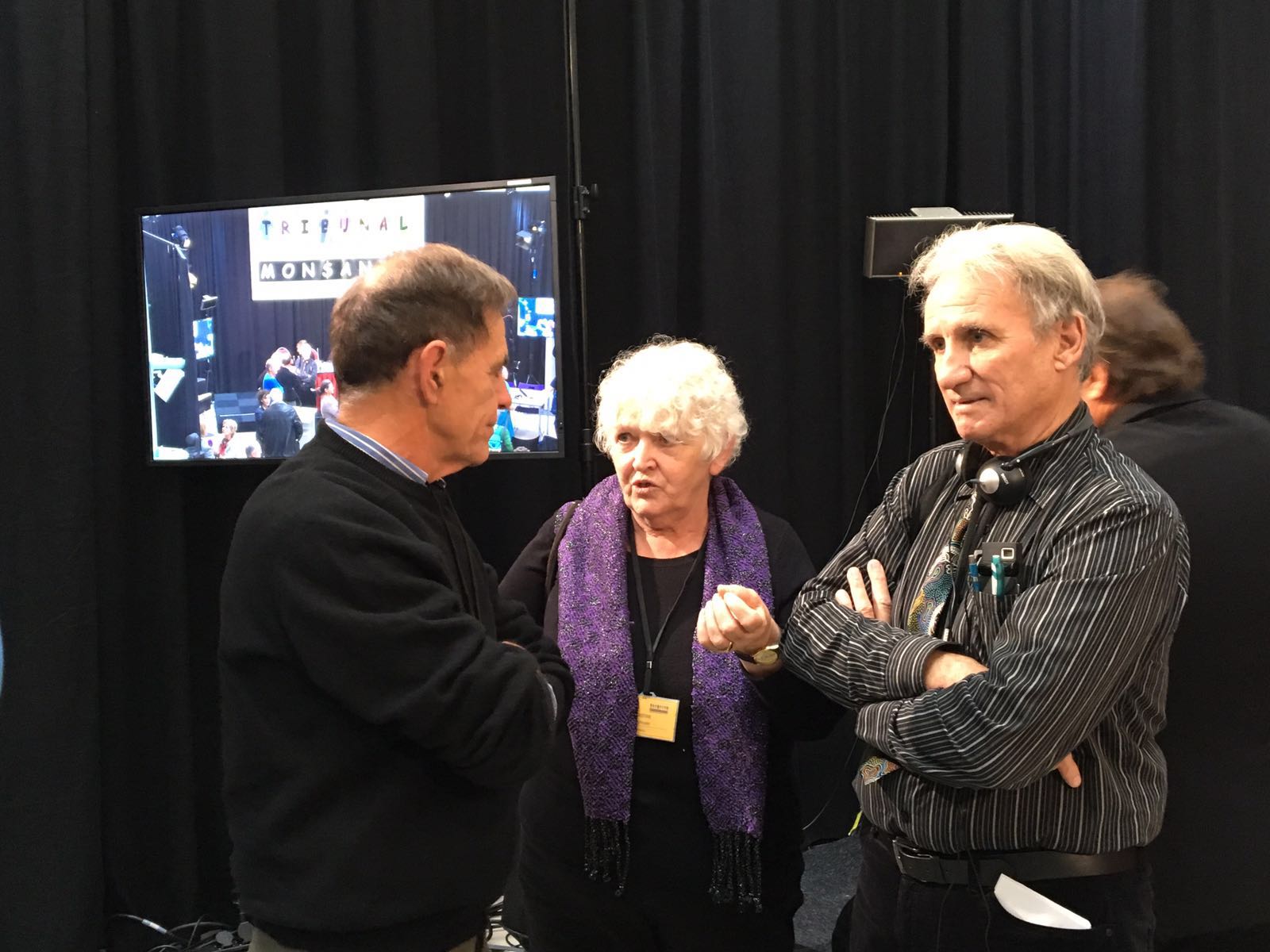
Christine Sheppard, victim RoundUp U.S.A.
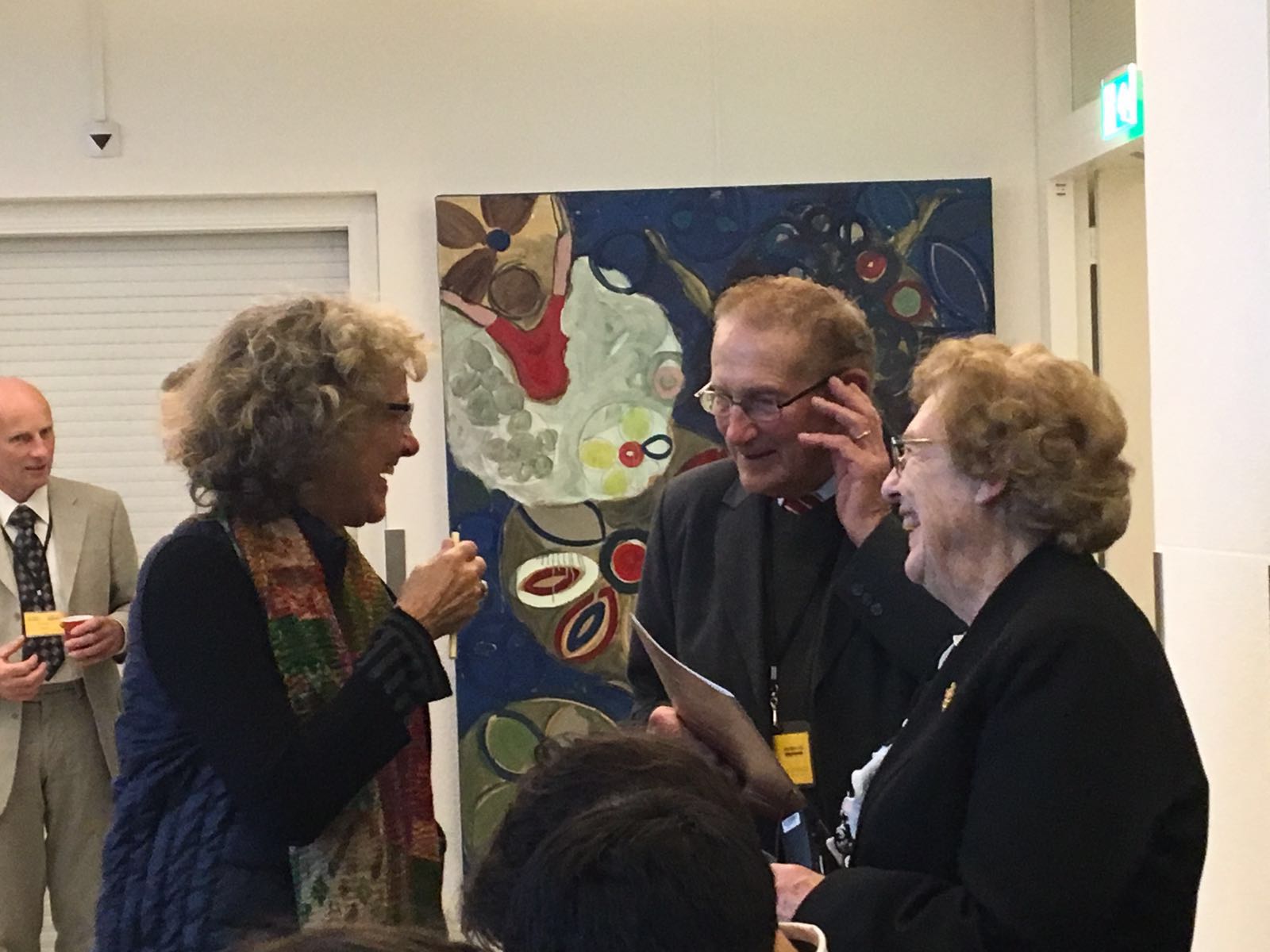
Caroline Lockhart (Navdanya International co-founder) with Percy Schmeiser and wife
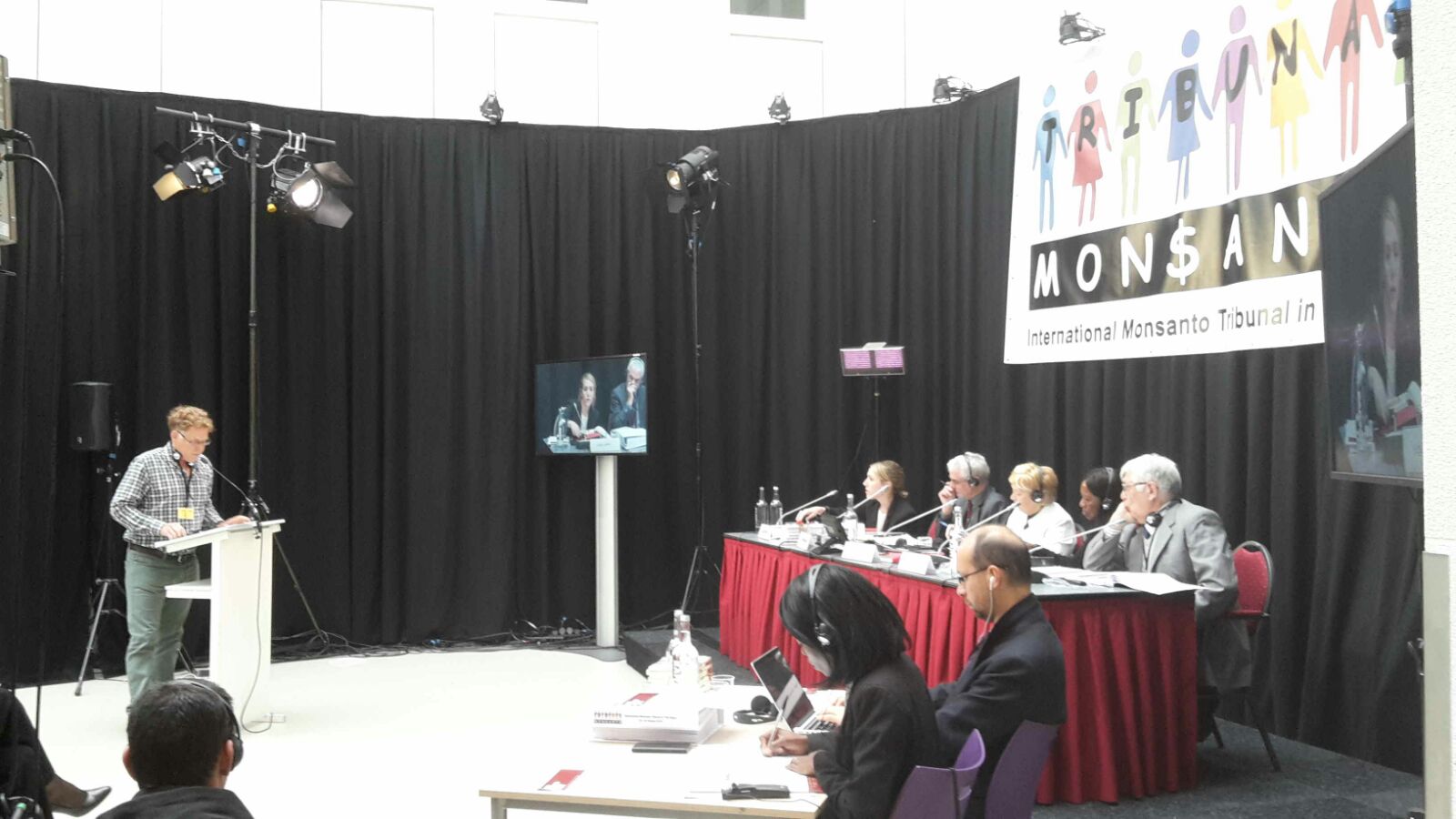
Diefo Fernandez, farmer
“Big mistake to give up our traditional methods. There are no more animals in our countryside and the fertility of our soil has been compromised”.
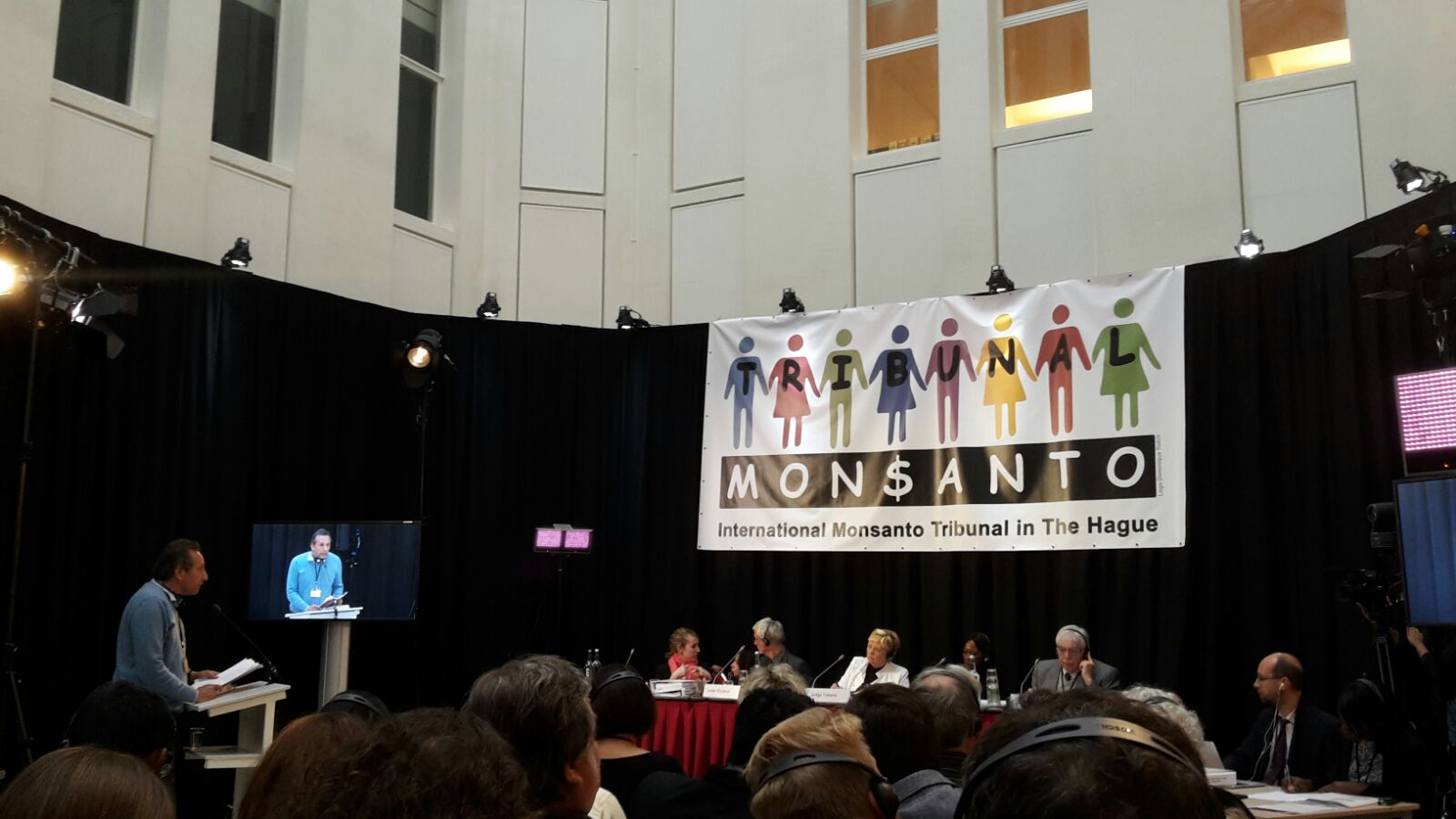
Marcel Firpo, public and environmental health researcher
“Industry have a massive lobbying apparatus that make it really hard for small scale farmer to act…Whole set of industrial interest that make it very hard to even get a case to court”
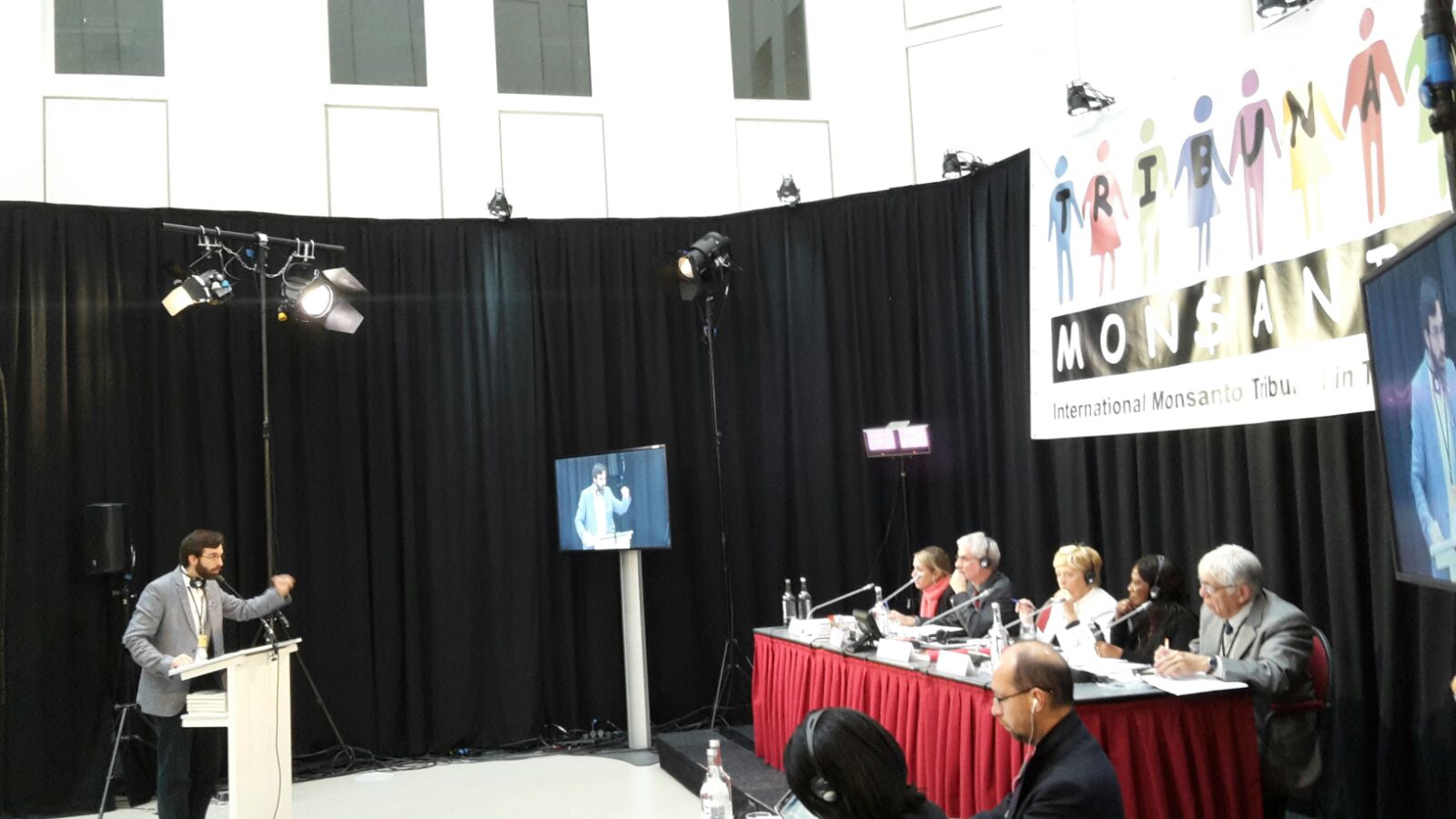
Damien Verzenassi, Doctor and Professor
“The existence of solid, consistent evidence is a basis for political decision … May I tell you that we were lied to when were told that GMO do not require chemicals, we were leid to when we were told that these chemicals were not harmful”
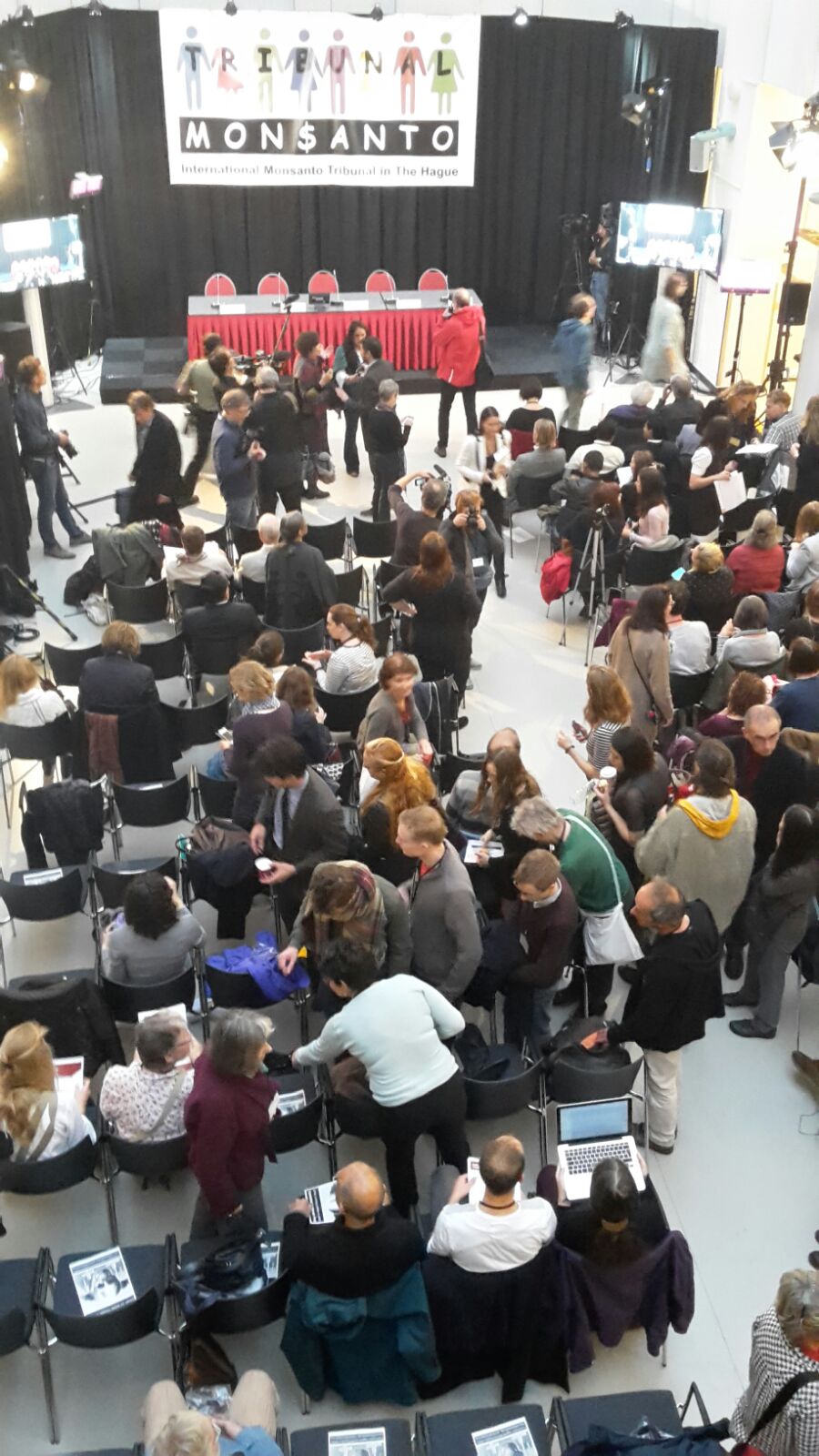
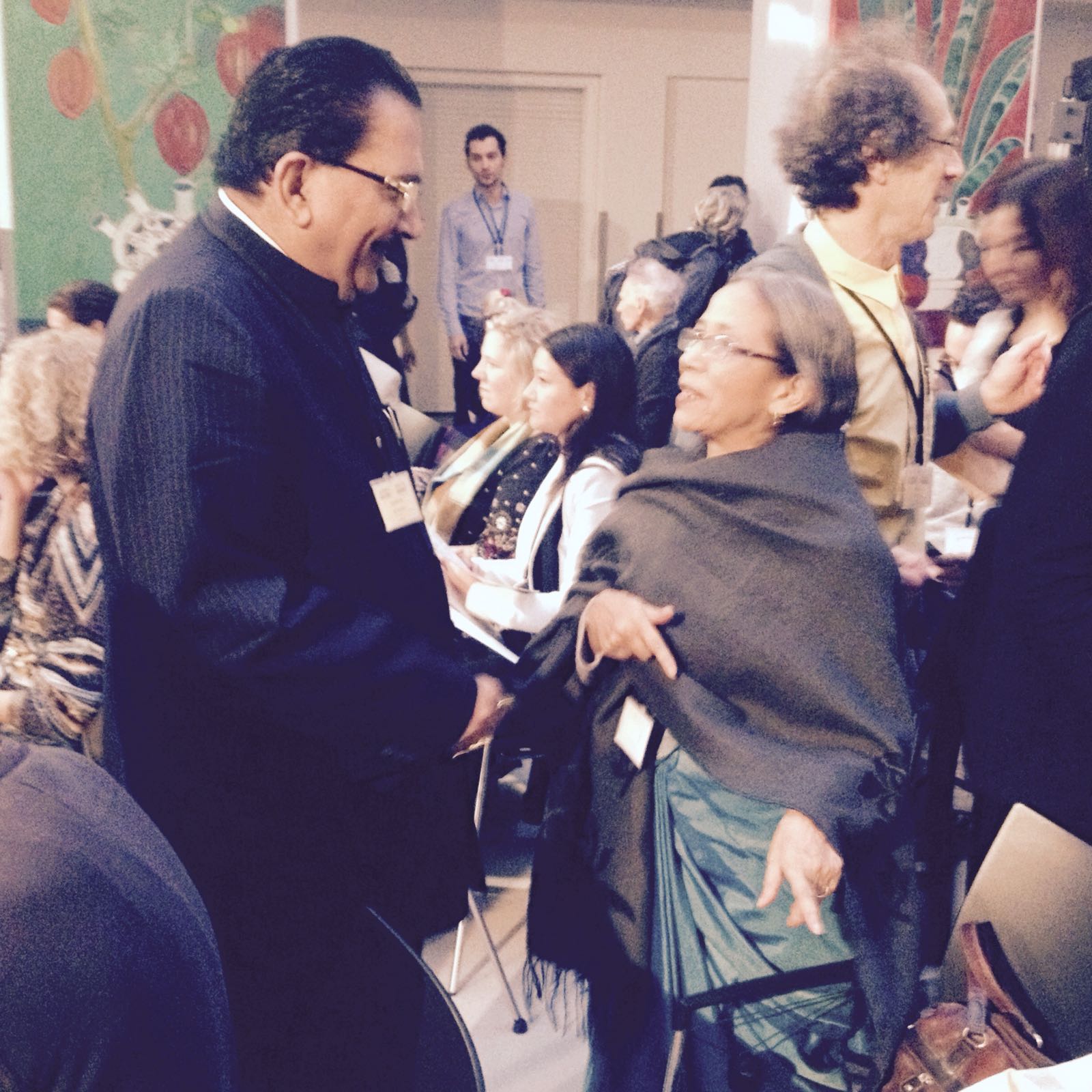
09.40: Dr. Krishan Bir Chaudhary and Farida Akhter have arrived at the Institute of Social Studies, where the Monsanto Tribunal is hosted
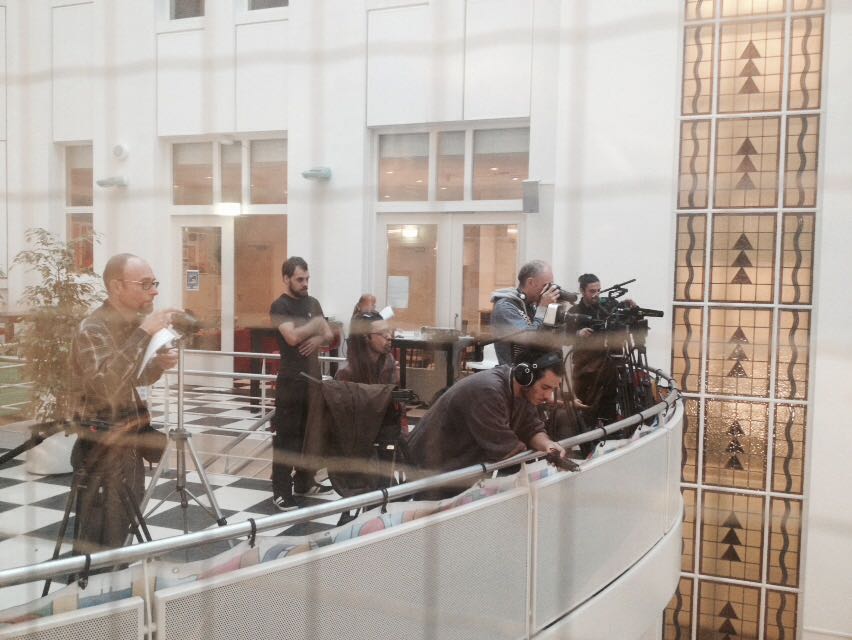
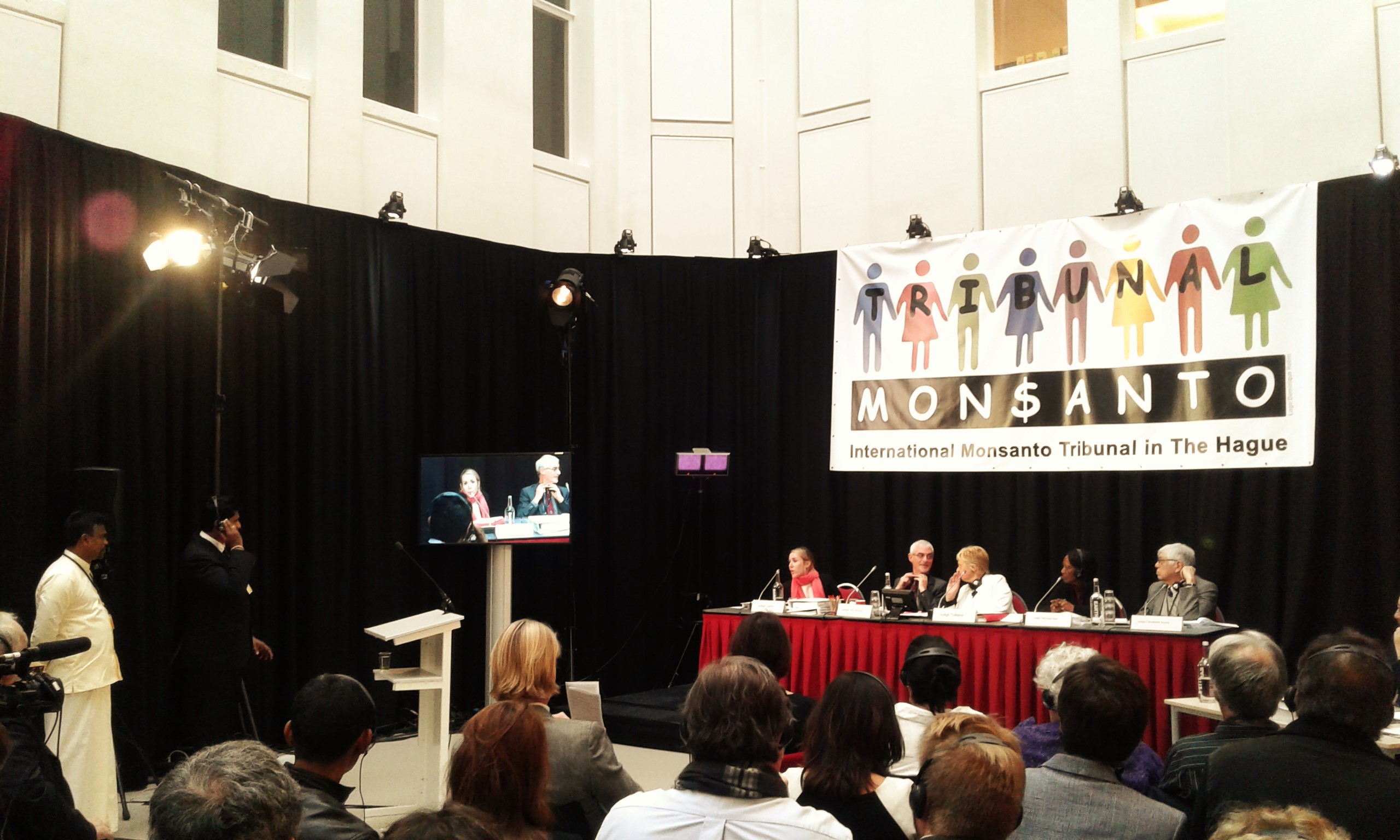
Kolon Saman, victim of RounUp
Channa Jayasumana, expert environmental health
“In 2014 Sri Lanka banned import of any products contaning glyphosate … since then Monsanto has put tremendous pressure on Sri Lanka government to lift ban but it remains in place today”
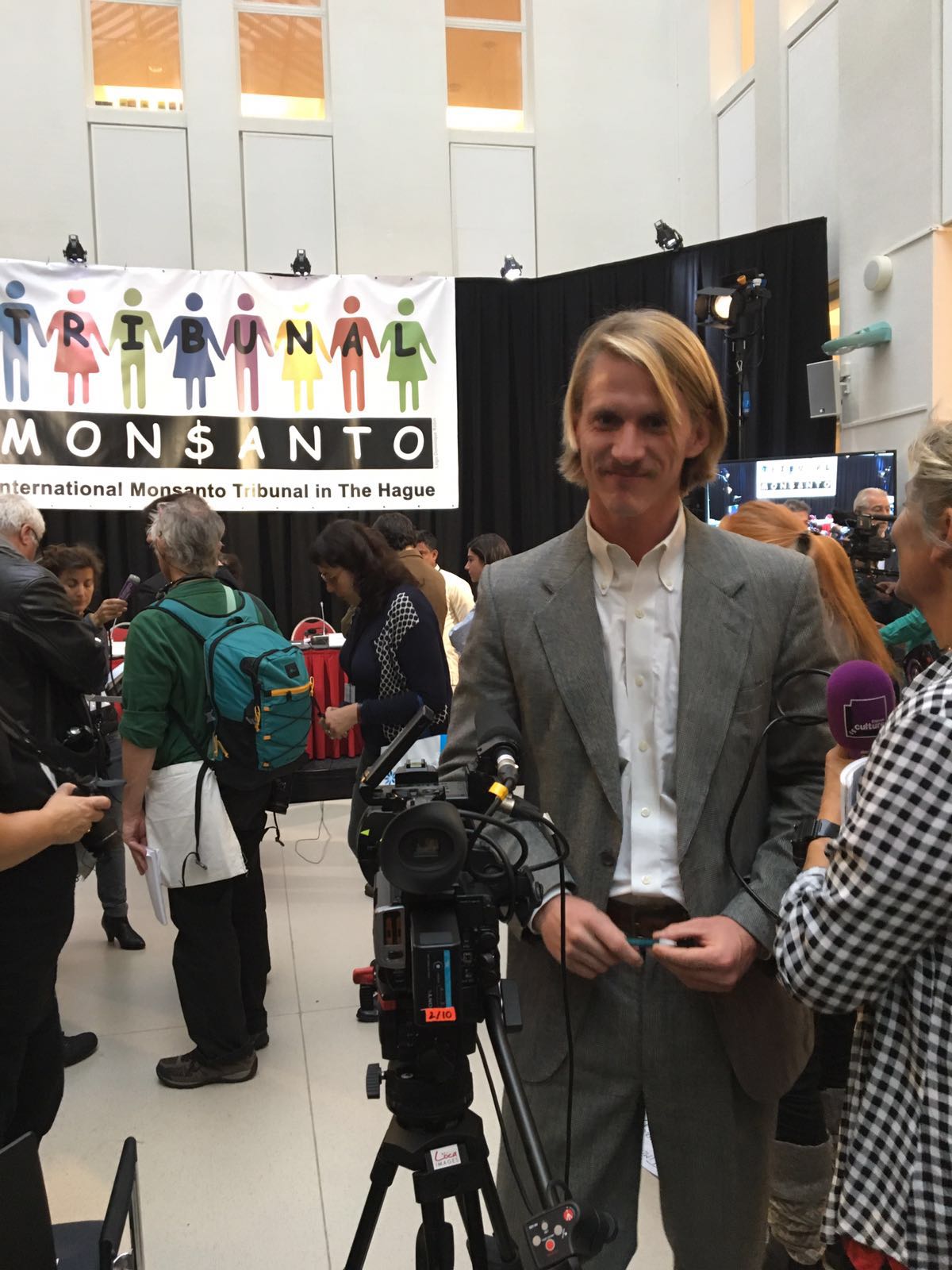
Timothy Litzenburg, lawyer
“Monsanto still issues no warning, no precautionary statement on the potential dangers … Monsanto has infiltrated very deeply into the regulatory process with many Monsanto execs working at the EPA”
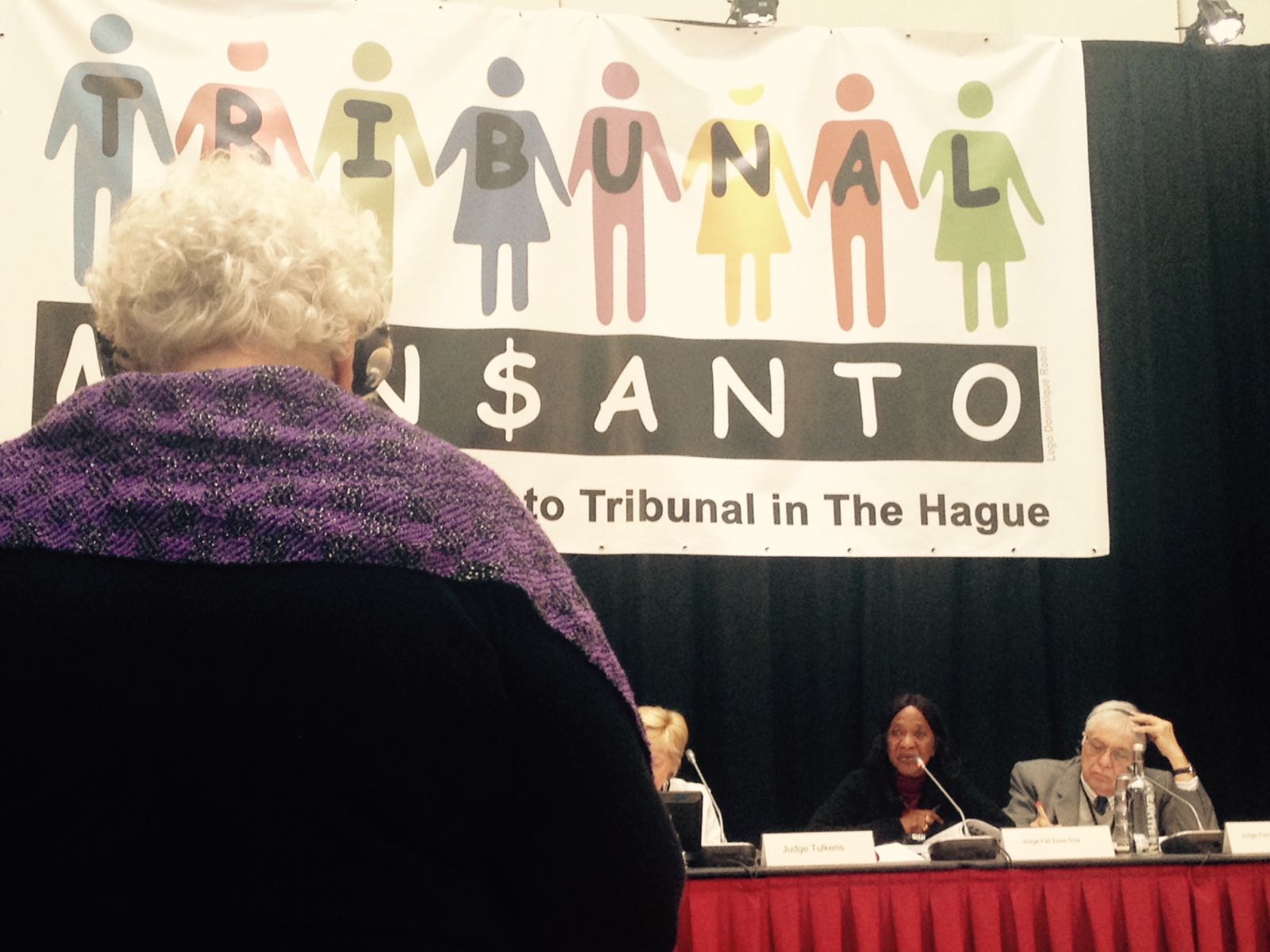
Christine Sheppard
“We bought RoundUp from our local store in Hawaii, they told us it was safe enough to drink…was not until studies were published showing link with glyphosate that she realized how she had contracted nonHodgkins lymphoma.”
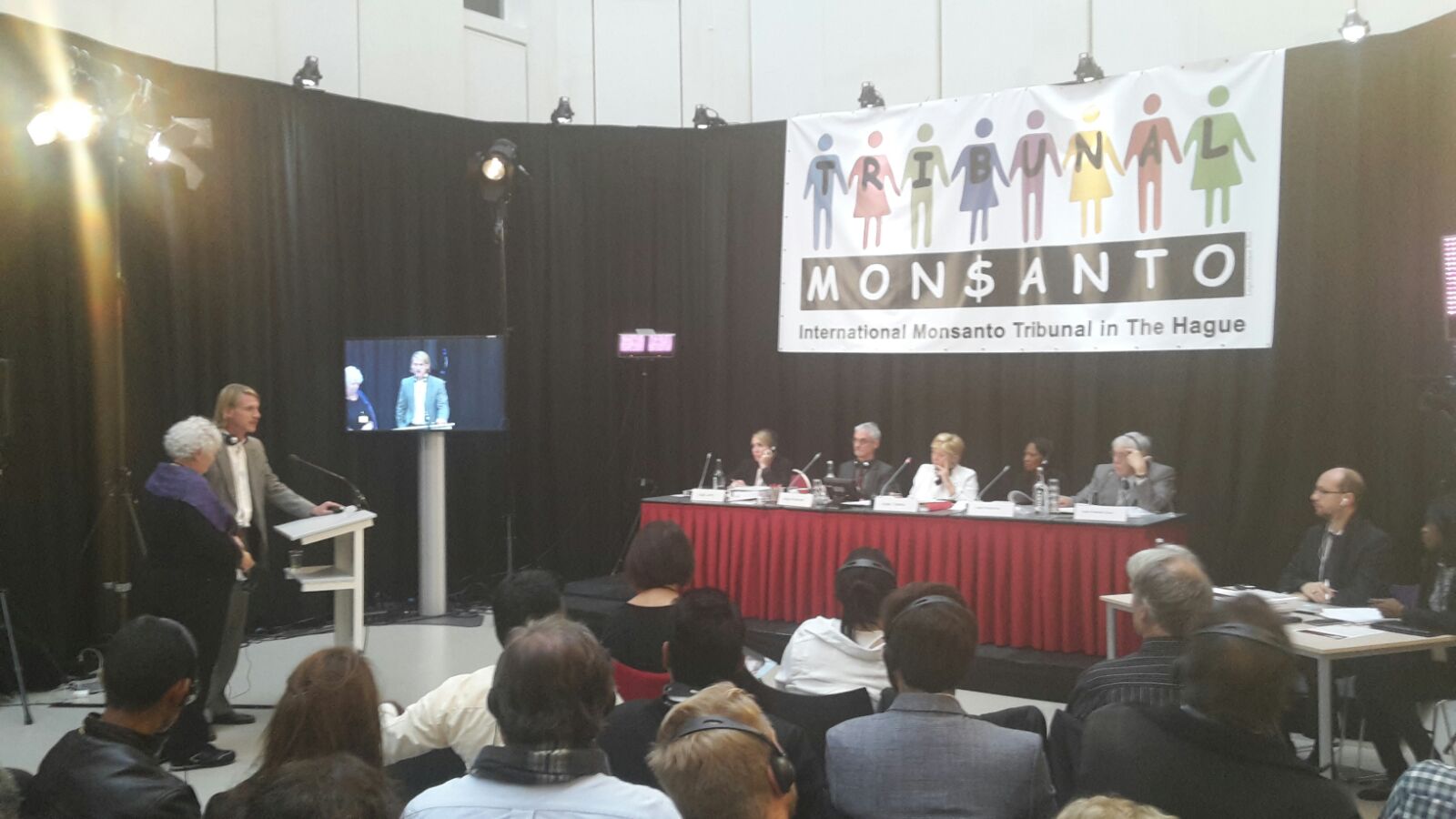
Christine Sheppard, victim of RoundUp and her lawyer Timothy Litzenburg
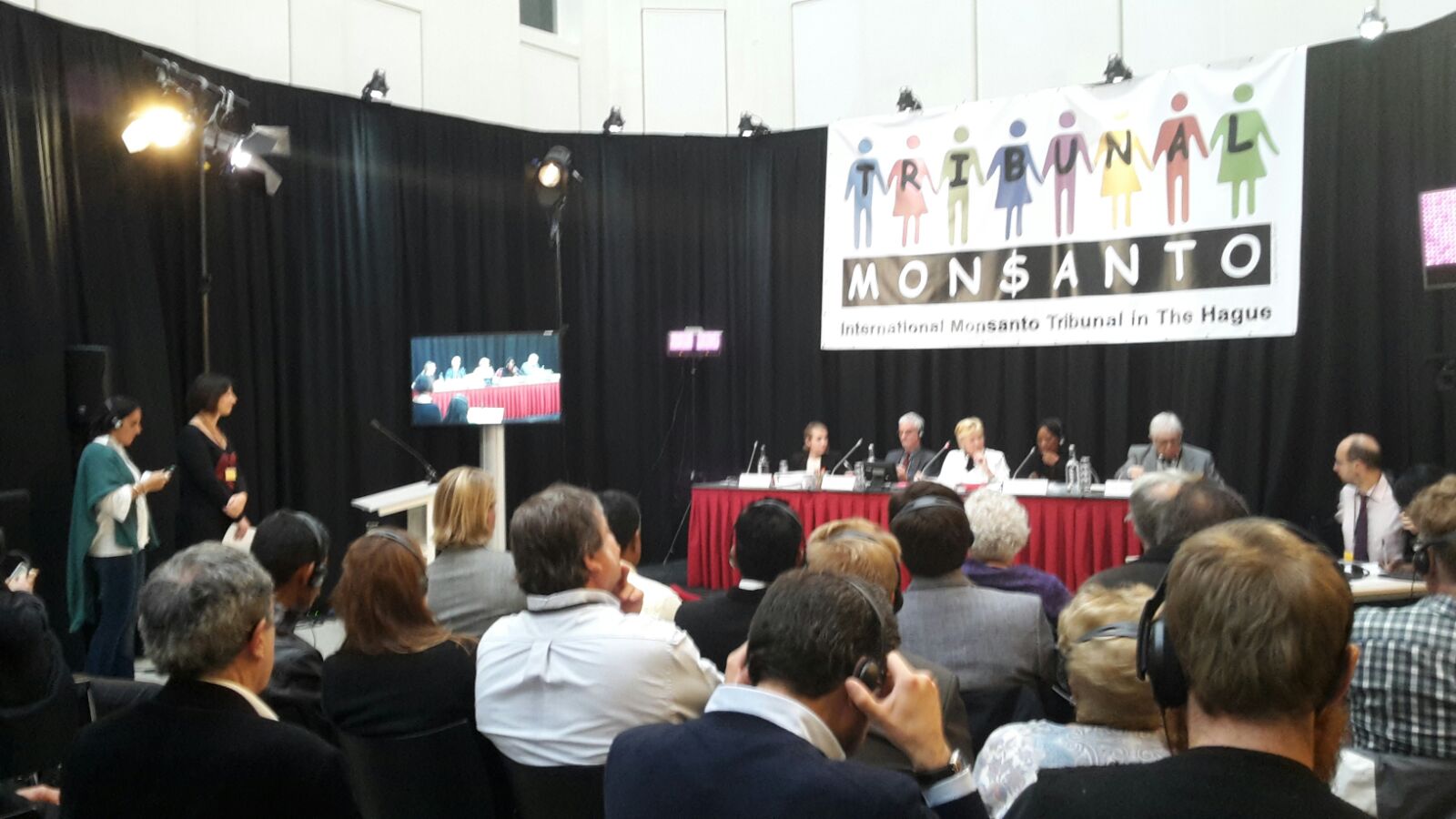
Sabine Grataloup and Maria Liz Robledo, mothers victims of RoundUp
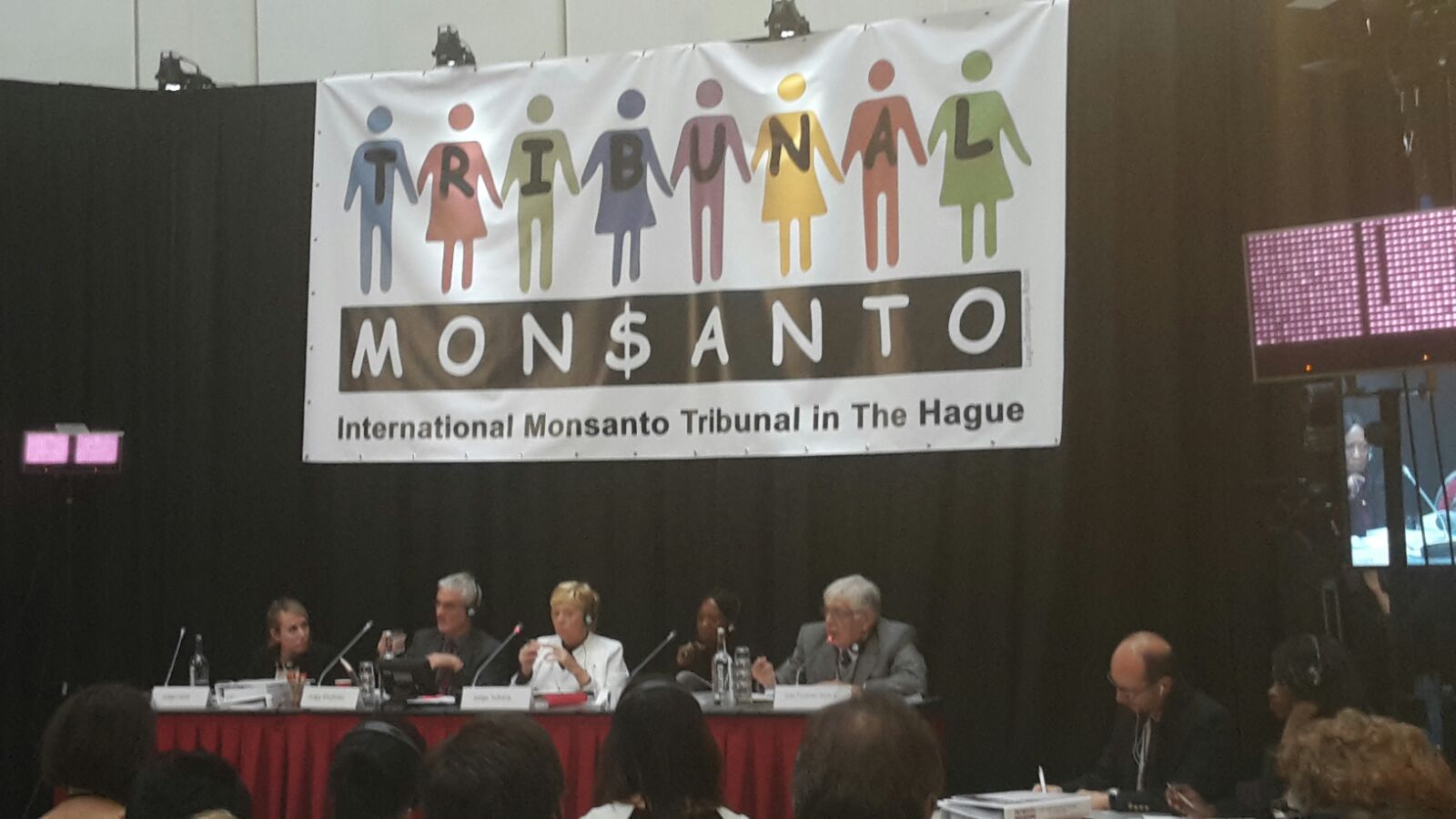
The Judgers
Eleonora Lamm, human rights director for the Supreme Court of Justice of Mendoza.
Steven Shrybman, member of the Boards of the Council of Canadians, and the Institute for Agriculture and Trade Policy.
Dior Fall Sow, former legal advisor, advocate general at the International Criminal Tribunal for Rwanda, and consultant at the International Criminal Court.
Françoise Tulkens, distinguished academic and expert in criminal law, comparative and European criminal law, juvenile justice and human rights protection systems.
Jorge Abraham Fernàndez Souza, judge of the Court of Administrative Litigation of the Federal District of Mexico.
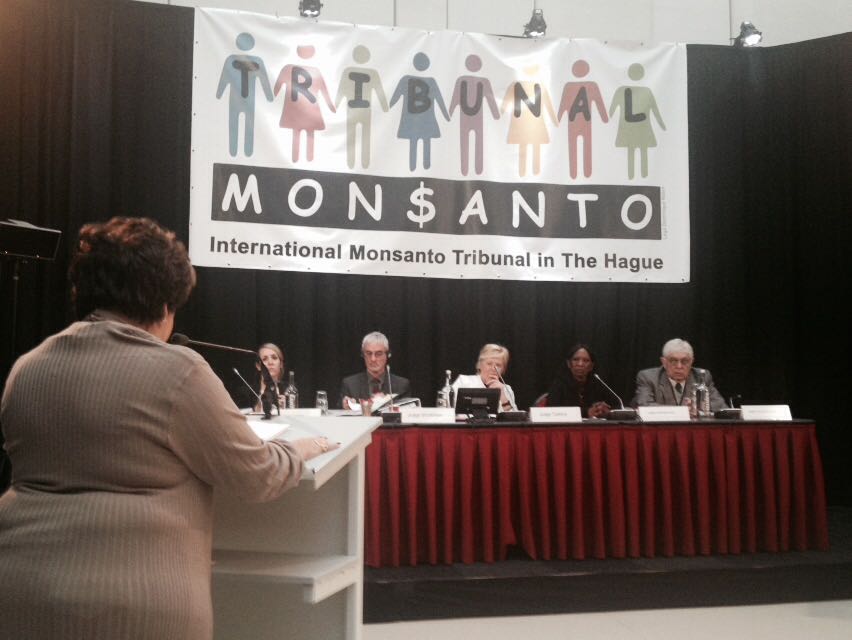
Opening of the International Monsanto Tribunal with Corinne Lepage, former French Minester for the Environment and Member of the European Parliament
“Today is a historic day, what happens today will be inscribed in the history of the 21st century”
